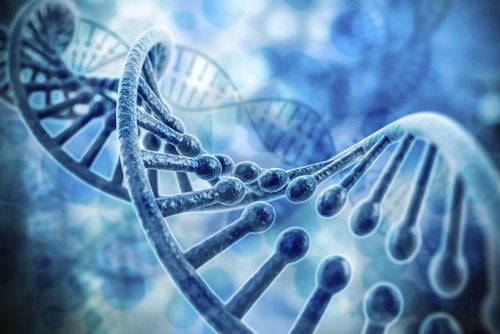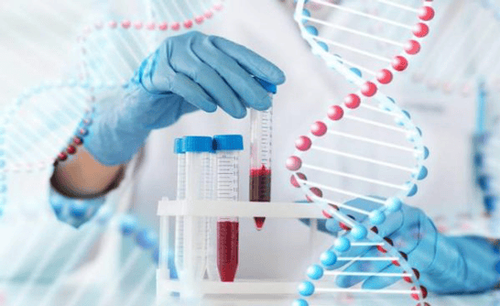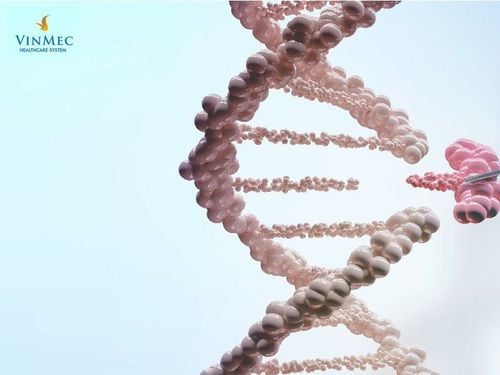This is an automatically translated article.
The article was written by Dr. Hoang Quoc Chinh - Vinmec Institute of Stem Cell and Gene Technology1. What is hereditary colorectal cancer?
Hereditary cancer is the result of one or more inherited mutations in genes whose normal function is to prevent tumor formation in the body. Inherited mutations increase an individual's risk of one or more types of cancer and are passed on from parents to children. APC, EPCAM, MLH1, MSH2, and MSH6 are the most common colorectal cancer risk genes. In addition to colorectal cancer inherited mutations in these genes also increase the risk of several other types of cancer including endometrial, stomach, ovarian, pancreatic, ureteral, and pelvic cancers. renal pelvis, brain, biliary tract, and small intestine.
Inherited mutations in genes that cause Lynch, Familial Adenomatous Polyposis, MUTYH-Asociated Polyposis, Peutz-Jeghers, Juvenile Polyposis, Serrated Polyposis, or Colonic Adenomatous Polyposis of Unknown Etiology such as PMS2, PTEN, SMAD4, STK11, TP53 also increases the risk of colorectal cancer, among other cancers. Genetic counselors can help you be aware of your genetic cancer risk and can offer advice to help you stay healthy and help you find out if your cancer is in your life. Is your family the result of a genetic mutation?
2. Warning signs of colorectal cancer risk
You or any member of your family has:
Colorectal cancer patient. Patients with endometrial cancer were diagnosed at the age of
3. How do I know if I have hereditary cancer?
Can a blood or saliva test tell you if you carry a genetic mutation? Most people do not inherit genetic mutations in the genes that cause cancer, so genetic testing is not recommended for everyone. A genetic counselor can provide you and your family with information about genetic testing, cancer risk, and ways to help you live a better life.

Xét nghiệm di truyền trên mẫu máu hoặc nước bọt
The genetic counselor will:
Help you understand hereditary cancers. Review your family history to assess and interpret inherited cancer risk. Describe the benefits and limitations of genetic testing, and discuss whether it is right for you. Ask for the right tests if you want genetic testing. Interpret and explain what the test results mean to you and your family Discuss measures to control your cancer risk and refer you to specialists for follow-up There are many types of genetic testing, so you should talk to a genetic counselor before having genetic testing. Test results can influence decisions about cancer screening, prevention, and treatment, and it's equally important to talk to a genetic counselor after testing. Your test results may also help you save enough to participate in clinical trials. Sharing your test results with loved ones will also help them become aware of their own cancer risk and about options for them to stay healthy.
You should consider having a gene test if you have one of the signs in the section "Warning signs for colorectal cancer" :
Help you understand hereditary cancers. Review your family history to assess and interpret inherited cancer risk. Describe the benefits and limitations of genetic testing, and discuss whether it is right for you. Ask for the right tests if you want genetic testing. Interpret and explain what the test results mean to you and your family Discuss measures to control your cancer risk and refer you to specialists for follow-up There are many types of genetic testing, so you should talk to a genetic counselor before having genetic testing. Test results can influence decisions about cancer screening, prevention, and treatment, and it's equally important to talk to a genetic counselor after testing. Your test results may also help you save enough to participate in clinical trials. Sharing your test results with loved ones will also help them become aware of their own cancer risk and about options for them to stay healthy.
You should consider having a gene test if you have one of the signs in the section "Warning signs for colorectal cancer" :

Cung cấp đầy đủ thông tin cho chuyên gia tư vấn di truyền để được hỗ trợ tốt nhất
4. What do my genetic test results mean?
Different gene tests analyze different mutations in different genes, and different mutations are associated with different types of cancer to varying degrees. The meaning of gene testing depends on the type of gene test, and whether the gene test result is negative or positive. This is why you should talk to a genetic counselor before and after testing.
A positive result means a genetic mutation was identified in your test. Your cancer risk depends on which gene is mutated, gender, age, family history, and other factors.
A negative result means there is no genetic mutation in any of the genes analyzed in your test. While this is good news, a negative result cannot provide complete information about your cancer risk. If the results are negative, your cancer risk depends on other factors such as your medical history and family history.
Your test results can provide important information to your loved one about their cancer risk. Therefore, sharing information about genetic testing results and genetic counseling will be very helpful for your family members.
Test results play an important role in choosing methods to detect, prevent, and treat hereditary cancers.
There are three ways to control the risk of cancer: Early detection screening, use of drugs, and surgery reduce the cancer risk of organs at risk of developing cancer. These measures are not equally effective for all cancers, and each option has its own strengths and weaknesses. Your health care team will help you make a long-term plan for controlling your cancer risk.
For cancer patients, genetic testing can contribute to treatment decisions including surgery, chemotherapy, radiation therapy, immunotherapy, or targeted therapy.
Participate in research to help find better options for diagnosis, prevention and treatment.
Everything we know about hereditary cancer treatment and cancer risk control is the result of research. Researchers are working to find ways to detect, prevent, and treat inherited cancers. Participating in research programs or clinical trials will help advance research.
A positive result means a genetic mutation was identified in your test. Your cancer risk depends on which gene is mutated, gender, age, family history, and other factors.
A negative result means there is no genetic mutation in any of the genes analyzed in your test. While this is good news, a negative result cannot provide complete information about your cancer risk. If the results are negative, your cancer risk depends on other factors such as your medical history and family history.
Your test results can provide important information to your loved one about their cancer risk. Therefore, sharing information about genetic testing results and genetic counseling will be very helpful for your family members.
Test results play an important role in choosing methods to detect, prevent, and treat hereditary cancers.
There are three ways to control the risk of cancer: Early detection screening, use of drugs, and surgery reduce the cancer risk of organs at risk of developing cancer. These measures are not equally effective for all cancers, and each option has its own strengths and weaknesses. Your health care team will help you make a long-term plan for controlling your cancer risk.
For cancer patients, genetic testing can contribute to treatment decisions including surgery, chemotherapy, radiation therapy, immunotherapy, or targeted therapy.
Participate in research to help find better options for diagnosis, prevention and treatment.
Everything we know about hereditary cancer treatment and cancer risk control is the result of research. Researchers are working to find ways to detect, prevent, and treat inherited cancers. Participating in research programs or clinical trials will help advance research.
Please dial HOTLINE for more information or register for an appointment HERE. Download MyVinmec app to make appointments faster and to manage your bookings easily.
Translation from “What you should know about genes and cancer”.













